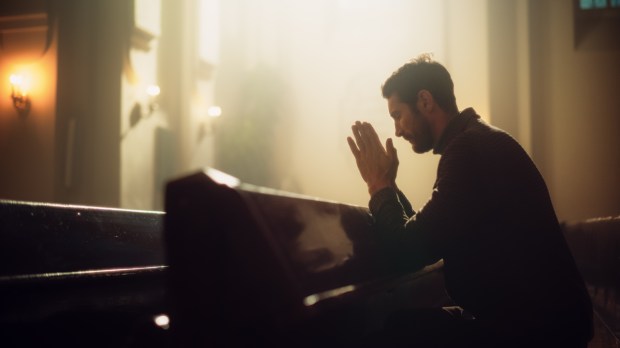In a world focused on instant gratification, the Catholic concept of penance may seem outdated – even harsh. Penance is often seen as obsolete, unnecessary, invalid.
Now, we Catholics use the term “penance” in at least two ways. The Sacrament of Penance is a formal, liturgical process in which a priest forgives sins after a confession of wrongdoing and a sincere desire to reform. It’s a specific sacramental practice that focuses on reconciliation with God and the human community at large. Oftentimes, we refer to the prayers or acts of charity assigned by the priest for reparation at the end of the sacrament as a “penance.”
But penance as self-mortification and denial, on the other hand, is a broader practice. It refers to actions intended to show remorse for sins and a commitment to live a better life. This can include things like fasting, prayer, or giving up something pleasurable. And while specific acts of self-denial may be part of the penance assigned by a priest, they’re not the only element; penance as a spiritual practice can be done independently of the Sacrament of Penance.
A daily choice
Indeed, the spirit of the Sacrament of Penance is supposed to continue beyond the formal liturgical act. Penance as a practice is expected to permeate our daily lives through efforts to right past wrongs and an ongoing education of one’s own moral compass. These practices are opportunities to realign our actions with our deepest values, to strengthen our discernment, and to demonstrate our commitment to walking a God-aligned path.
It can be seen how this second understanding of penance (again, as a spiritual practice implying some degree of self-denial) is actually positive and always timely.
When seen from a positive stance, penance is a transformative act of spiritual and personal growth. Its importance lies in the profound and constructive power of sincere repentance, yes, but also in its capacity to tell right from wrong not only intellectually, but also (and as importantly) from a sentimental, emotional stance. When we repent, we finally see the difference between one thing and the other.
This is a process that implies training one’s own emotions, learning to love what deserves to be loved.
The heart of repentance: Contrition and transformation
The word “penance” has its roots in the Old French and Latin terms for repentance. While repentance implies genuine inner sorrow for wrongdoing, penance refers to the actions we take to demonstrate our remorse and commitment to change. It implies a deep awareness of the good and the bad at the core of our emotional being.
True repentance comes from contrition, a heartfelt remorse for our sins and shortcomings. While guilt may focus on consequences, contrition arises from the recognition of the harm itself – the harm we have done to ourselves, others, and to our relationship with God.
But, far from pushing us down, this recognition is uplifting, inspiring a deep desire for renewal and reconciliation.
The power of penance
Penance is often misunderstood as self-punishment. But a subtle shift from self-punishment to self-denial can shed new light on it. Just as self-denial implies letting go of attachments that weigh us down so that we can become free to focus on what truly matters, penance can be a deeply constructive process.
By embracing penance, we acknowledge our imperfections, embarking on the endless journey of self-knowledge. But, as importantly, it helps us cultivate humility, deepen our empathy, and actively seek reconciliation with ourselves, with others, and with God.



